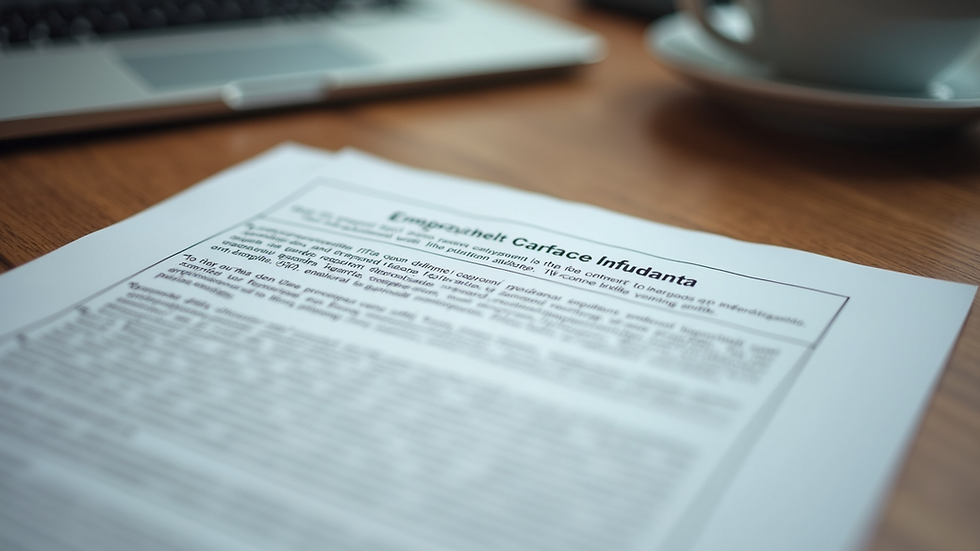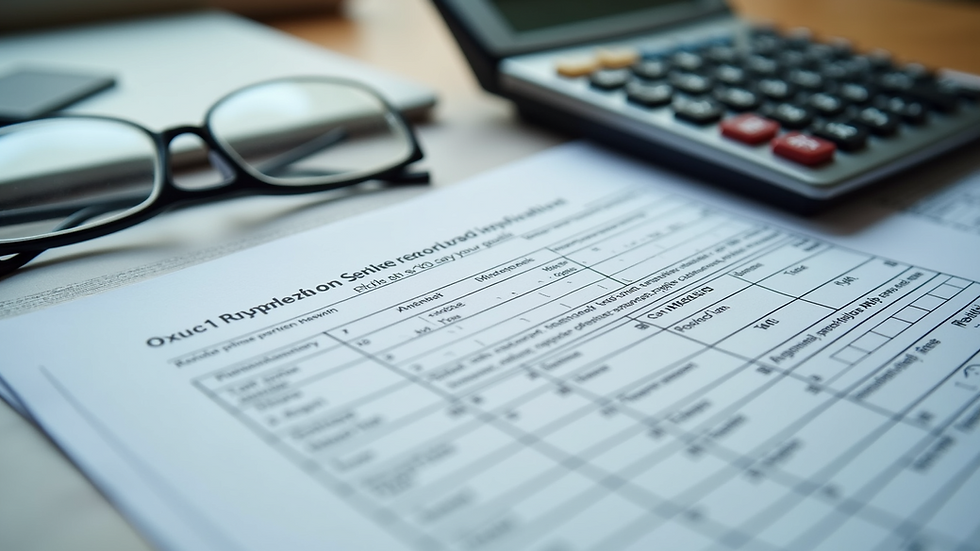Key Documents Needed for Income Verification
- Richard Hughes
- Sep 15
- 4 min read
When applying for loans, renting an apartment, or even applying for government assistance, proving your income is often a crucial step. Income verification helps lenders, landlords, and agencies confirm your financial stability and ability to meet obligations. Knowing which income documents to prepare can make this process smoother and faster.
Understanding the Importance of Income Documents
Income documents serve as proof of your earnings over a specific period. They provide a clear picture of your financial situation to the requesting party. Without proper documentation, your application for credit, housing, or benefits may be delayed or denied.
Common reasons you might need to provide income documents include:
Applying for a mortgage or personal loan
Renting a home or apartment
Qualifying for government programs or subsidies
Verifying income for child support or legal matters
Having the right documents ready can save you time and reduce stress during these processes.

Common Types of Income Documents
There are several types of income documents that are widely accepted for verification purposes. Depending on your employment status and income sources, you may need one or more of the following:
Pay Stubs
Pay stubs are one of the most common proofs of income. They show your earnings for a specific pay period and often include deductions for taxes, insurance, and retirement contributions. Typically, lenders or landlords ask for the most recent 2-3 pay stubs.
Example: If you are paid biweekly, providing the last three pay stubs will cover approximately six weeks of income.
W-2 Forms
The W-2 form is an annual statement provided by your employer that summarizes your total earnings and taxes withheld for the year. It is useful for verifying your income over the past year.
Tip: If you are self-employed or have multiple jobs, you may need to provide W-2s from all employers.
Tax Returns
Tax returns, especially the IRS Form 1040, provide a comprehensive overview of your income, deductions, and tax payments for the year. They are often required for self-employed individuals or those with irregular income.
Recommendation: Submit the last two years of tax returns to show consistent income.
Bank Statements
Bank statements can supplement other income documents by showing deposits from your employer or clients. They are particularly helpful if you receive income through direct deposit or have freelance earnings.
Note: Highlight or annotate deposits that represent your income to make verification easier.
Employment Verification Letter
An employment verification letter is a document from your employer confirming your job status, salary, and length of employment. This letter is often requested when pay stubs or tax returns are not sufficient or unavailable.
Example: A landlord may request this letter to confirm your current employment before approving a lease.

Specialized Income Documents for Different Situations
Certain situations require specific types of income documents. Understanding these can help you prepare the right paperwork.
Self-Employed Individuals
If you are self-employed, traditional pay stubs and W-2s may not apply. Instead, you should provide:
Recent tax returns with all schedules
Profit and loss statements
1099 forms showing income from clients
Bank statements showing business deposits
Freelancers and Contractors
Freelancers and contractors often receive 1099 forms instead of W-2s. These forms report income received from clients. Along with 1099s, you should provide:
Invoices or contracts with clients
Bank statements showing payments received
Tax returns with Schedule C (Profit or Loss from Business)
Retirees and Social Security Recipients
If your income comes from retirement benefits or Social Security, you can provide:
Social Security award letters
Pension statements
1099-R forms for retirement distributions
Bank statements showing direct deposits
Government Assistance Recipients
For those receiving government assistance, documents such as award letters or benefit statements can verify income.
Example: SNAP benefits letter or unemployment compensation statements.

Tips for Organizing and Submitting Income Documents
Proper organization and presentation of your income documents can improve the verification process. Here are some practical tips:
Gather all relevant documents - Collect pay stubs, tax returns, bank statements, and any other proof of income you have.
Make copies - Always keep copies of documents you submit for your records.
Highlight key information - Use a highlighter or notes to draw attention to important details like income amounts and dates.
Use secure methods to submit - If submitting online, use secure portals or encrypted email. For physical copies, use certified mail if necessary.
Check for completeness - Ensure all pages are included and documents are legible.
Update documents regularly - Keep your income documents current, especially if you anticipate needing them soon.
Where to Learn More About Income Verification Documents
For more detailed information and guidance on income verification documents, you can visit this resource on income verification documents. It offers comprehensive advice on what documents are accepted and how to prepare them.
Preparing for Your Income Verification Process
Being proactive about income verification can save you time and frustration. Here are some actionable recommendations:
Request documents early - Don’t wait until the last minute to gather your income documents.
Understand the requirements - Ask the requesting party which documents they accept.
Keep digital copies - Scan and save your documents securely for easy access.
Consult a professional if needed - Accountants or financial advisors can help prepare complex documents.
By following these steps, you can ensure a smooth income verification experience.
This guide has outlined the key income documents you need to verify your earnings effectively. Whether you are employed, self-employed, or receiving benefits, having the right paperwork ready is essential for financial transactions and applications. Keep your documents organized and up to date to avoid delays and complications.







Comments